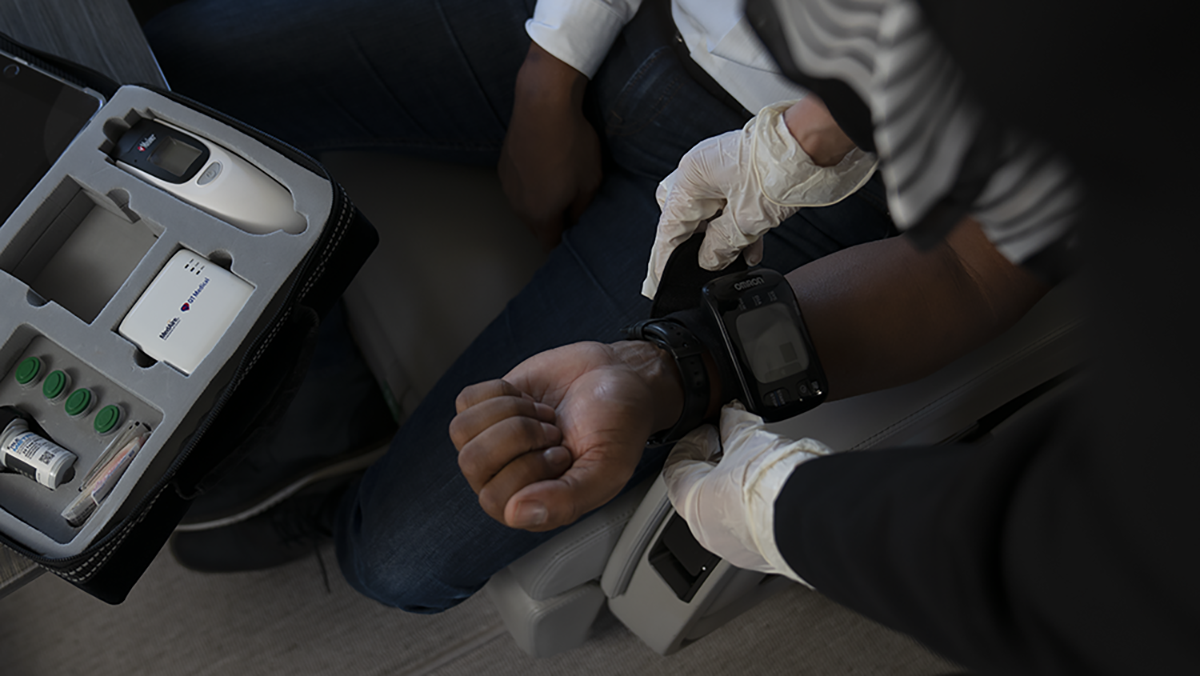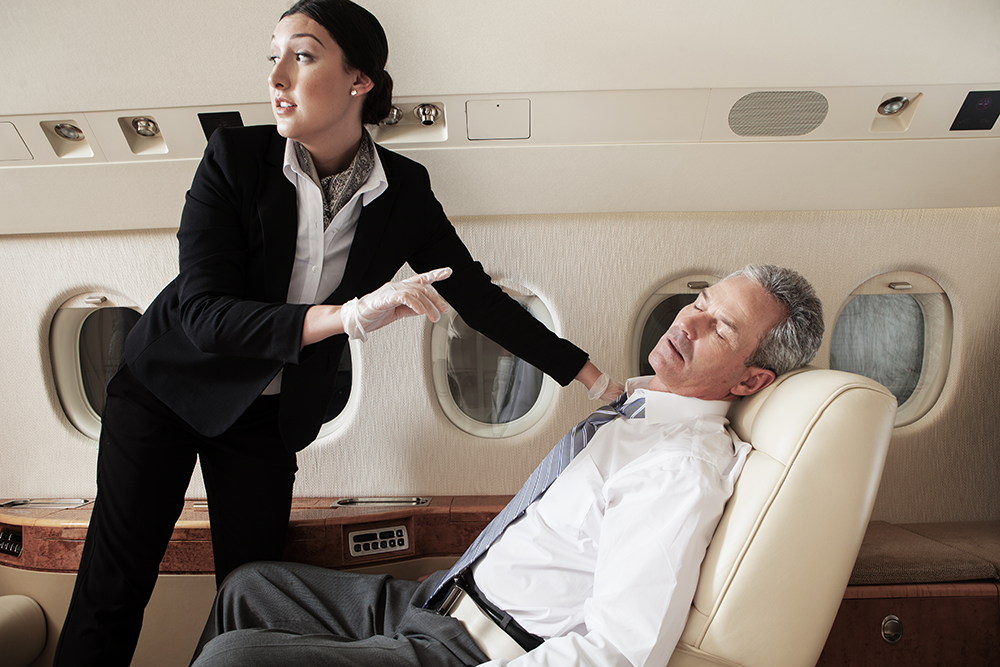
To reduce its environmental impact and achieve its goal of net-zero emissions, the entire business aviation industry is evolving.
Even companies that do not manufacture or operate aircraft are changing how they do business – companies such as risk management service provider MedAire.
An International SOS company that partners with aircraft operators to keep passengers and crews safe, MedAire launched an ambitious sustainability effort in 2019. The company started by collaborating with its travel booking agent to monitor its business-travel carbon footprint for reporting purposes.
Then, in 2021, MedAire engaged the sustainability auditor EcoVadis, which assessed its business and recommended improvements to its sustainability practices.
“As we embarked on our sustainability journey, it became evident that different years may require varying tactics and focuses to achieve the same level of impact,” said CEO Bill Dolny. “Our year-over-year benchmarking taught us that a one-size-fits-all approach might not always be practical. Each year presents unique challenges and opportunities, requiring us to adapt and adjust our strategies accordingly to maintain momentum in our mission.”
By analyzing and implementing easily achievable changes across its operations, and encouraging buy-in across the company, MedAire has achieved a 46% carbon-footprint reduction in less than five years.
“As we embarked on our sustainability journey, it became evident that different years may require varying tactics and focuses to achieve the same level of impact.”
BILL DOLNY, CEO
Top-Down Sustainability Commitment
“With the help of pandemic-related tailwinds encouraging new ways of working, we achieved widespread adoption of virtual meetings, reduced employee commuting and remote working arrangements,” said Christopher Potter, head of marketing at MedAire.
“In addition, we introduced aggressive waste and recycling programs and transitioned to reusable materials in the workplace, Potter added. “For example, offering ceramic mugs instead of disposal plastic cups for coffee and tea drinkers. And we started sourcing green office products, and revamped our approach to events by eliminating physical collateral where possible, minimizing the transportation of signage and other materials to trade shows, and recycling or donating surplus materials.”
“With the help of pandemic-related tailwinds encouraging new ways of working, we achieved widespread adoption of virtual meetings, reduced employee commuting and remote working arrangements.”
CHRISTOPHER POTTER, Head of Marketing, MedAire
MedAire’s approach starts with a top-down commitment to sustainability. The company’s sustainability efforts are spearheaded by Potter and facilities manager Robin Drain, who report directly to Dolny.
To get everyone on the MedAire team to buy into new ways of doing things, the company mandates the completion of new employee training and education programming. Now, annual e-learning courses emphasize the need for every employee to align around a sustainability-focused mindset.
The Whole Company, Pulling Together to Cut Emissions
MedAire encourages cross-functional collaboration to share knowledge and bring diverse, bottom-up perspectives to its sustainability efforts. Involving teams from across the company allows sustainability programs to benefit from each department’s unique expertise. For instance, IT has advised on selecting technological solutions to help reduce the company’s environmental impact.
“At MedAire, our success is made possible by the synergy created when diverse departments join forces to pursue our common goals,” said Dolny. “It’s no different with sustainability. The unique insights each team contributes fuel innovation, pushing us to think differently and find more holistic, effective solutions for a greener future.”
As it has progressed on its sustainability journey, the company has learned the importance of establishing a clear vision and strategy, setting realistic goals and measuring progress toward those goals on an ongoing basis.
“My advice to others in the industry is to carefully define your sustainability goals and develop a comprehensive strategy that addresses specific environmental, social and governance aspects relevant to your business,” said Potter.
“My advice to others in the industry is to carefully define your sustainability goals and develop a comprehensive strategy that addresses specific environmental, social and governance aspects relevant to your business.”
CHRISTOPHER POTTER, Head of Marketing, MedAire

Sustainability Aligned to the Company’s Mission
To be successful, sustainability goals must be grounded in the company’s overarching mission, values and strategy. And they need to be measurable and achievable.
“For an accurate understanding of your sustainability impact, it’s vital to adopt both a granular and big-picture approach,” said Potter, “For example, this approach enabled us to identify a significant blind spot in our calculations of our carbon footprint: our taxi, rideshare and rental-car usage during business travel.”
Beyond that, according to Potter, it’s important to be agile and adaptable in order to respond to external factors and seize new opportunities. Companies should strive for continuous improvement in sustainability. That way, they can learn from their ongoing progress against sustainability goals while staying informed about relevant advancements in technology and industry best practices.
Companies across the business aviation industry can look to partner with like-minded organizations to share knowledge, foster innovation and drive the entire industry towards a greener future. But more important than anything is taking the first step.
“The most challenging part of the sustainability journey is just getting started. Pick some relevant metrics, track them and try to improve them,” said Potter. “Sustainability is an iterative process that requires continuous learning and adaptation. Just getting started is crucial for long-term success.”
